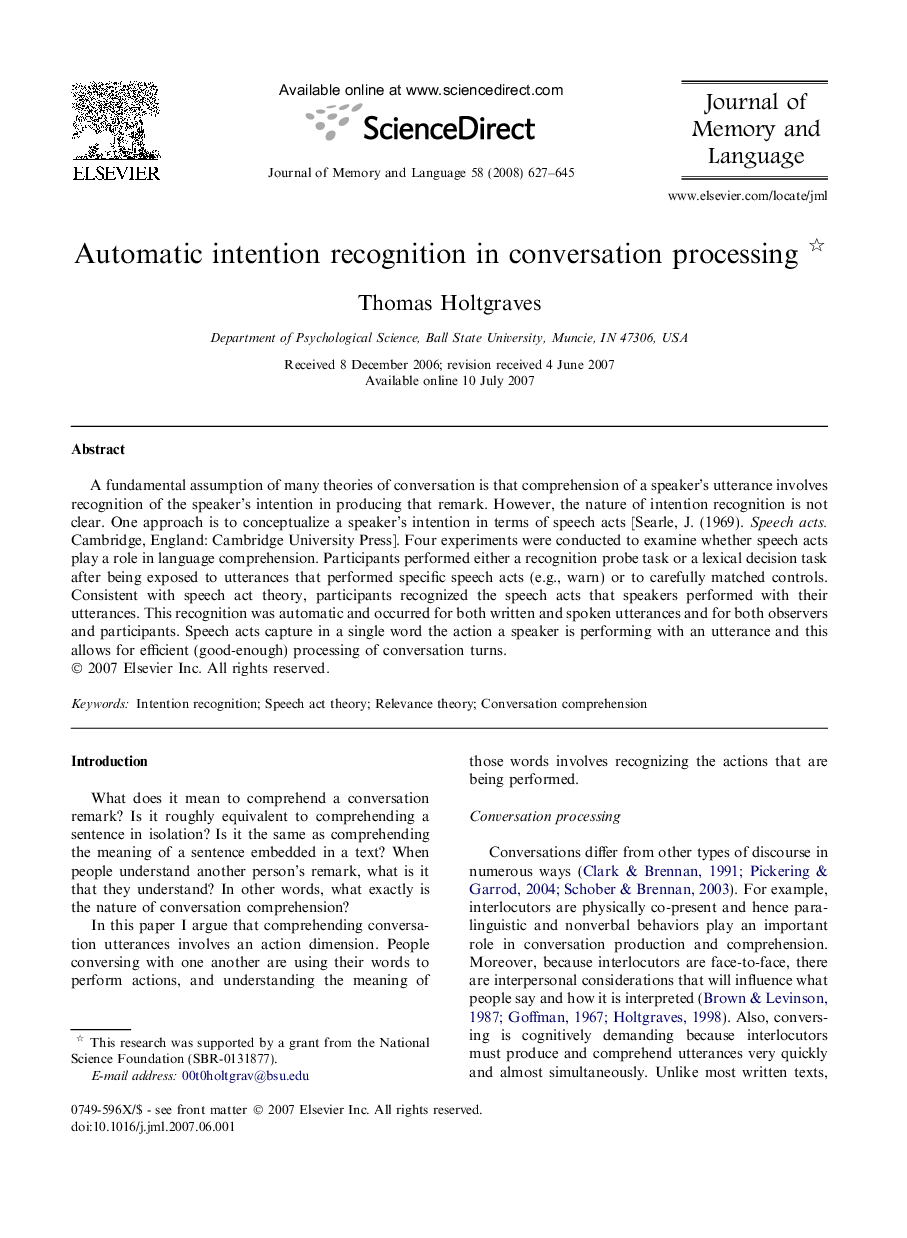| Article ID | Journal | Published Year | Pages | File Type |
|---|---|---|---|---|
| 932216 | Journal of Memory and Language | 2008 | 19 Pages |
A fundamental assumption of many theories of conversation is that comprehension of a speaker’s utterance involves recognition of the speaker’s intention in producing that remark. However, the nature of intention recognition is not clear. One approach is to conceptualize a speaker’s intention in terms of speech acts [Searle, J. (1969). Speech acts. Cambridge, England: Cambridge University Press]. Four experiments were conducted to examine whether speech acts play a role in language comprehension. Participants performed either a recognition probe task or a lexical decision task after being exposed to utterances that performed specific speech acts (e.g., warn) or to carefully matched controls. Consistent with speech act theory, participants recognized the speech acts that speakers performed with their utterances. This recognition was automatic and occurred for both written and spoken utterances and for both observers and participants. Speech acts capture in a single word the action a speaker is performing with an utterance and this allows for efficient (good-enough) processing of conversation turns.
